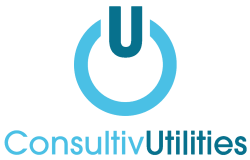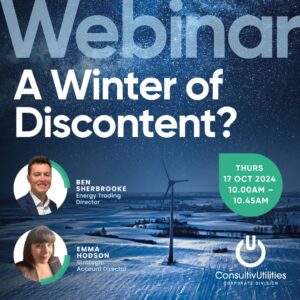You may be eligible for compensation for the indirect costs of the UK Emissions Trading Scheme (UK ETS) and the Carbon Price Support (CPS) Mechanism.
What is the UK ETS and CPS?
A key driver for investment in low carbon technologies, including electricity generation, is carbon pricing. Following the UK’s exit from the European Union, the UK introduced the UK ETS. This was to replace the UK participation in the EU Emissions Trading System (EU ETS). The UK Government introduced a carbon price support mechanism (CPS) in 2013 in addition to the then EU ETS.
Why is compensation available?
The government recognises that carbon pricing through the UK ETS and CPS will have a knock-on effect on the wholesale electricity price and increase retail electricity prices in the short to medium term. A high carbon price can make electricity prices less competitive and increase the risk of carbon leakage for the UK’s most electricity-intensive businesses, particularly those which operate in internationally competitive markets and are unable to pass these indirect emission costs through to consumers.
In recognition of this, the government will compensate those electricity-intensive industries deemed to be exposed to a significant risk of carbon leakage due to the indirect emission costs of the UK ETS and CPS.
Eligibility for UK Emissions Trading Scheme / CPS Compensation
There are 2 steps to assessing whether a business is eligible to claim compensation for the indirect costs of the UK ETS/CPS:
- The business must manufacture a product in the UK within an eligible sector (determined by reference to the 4-digit SIC code)
- The business must pass a 5% filter test
In this guidance the ‘applicant’ refers to the legal entity manufacturing a product in GB. This will typically be a business registered at Companies House.
Eligible sectors
The list of eligible sectors applies to compensation for the indirect costs of both the UK ETS and CPS. Applicants will need to establish that they manufacture a product which falls within one of the eligible 4-digit SIC codes in Table 1 below. If a business does not manufacture a product in Table 1 it will not be eligible. Businesses that sell or resell eligible products without having manufactured them are not eligible.
Table 1: list of eligible sectors
| SIC Code | Description |
| 1310 | Preparation and spinning of cotton-type fibres |
| 1411 | Manufacture of leather clothes |
| 1621 | Manufacture of veneer sheets and wood-based panels |
| 1711 | Manufacture of pulp |
| 1712 | Manufacture of paper and paperboard |
| 2013 | Manufacture of other inorganic basic chemicals |
| 2014 | Manufacture of other organic basic chemicals |
| 2015 | Manufacture of fertilisers and nitrogen compounds |
| 2314 | Manufacture of glass fibres |
| 2410 | Manufacture of basic iron and steel and of ferro-alloys |
| 2442 | Aluminium production |
| 2443 | Lead, zinc and tin production |
| 2444 | Copper production |
| 2720 | Manufacture of batteries and accumulators |
How can Consultiv help?
Consultiv can review your business and assess your eligibility for compensation, manage the application process and facilitate the compensation payments. We work on a share of saving basis.
Press HERE to allow one of our experienced members of staff assist you further with your energy bills.
Categories:

